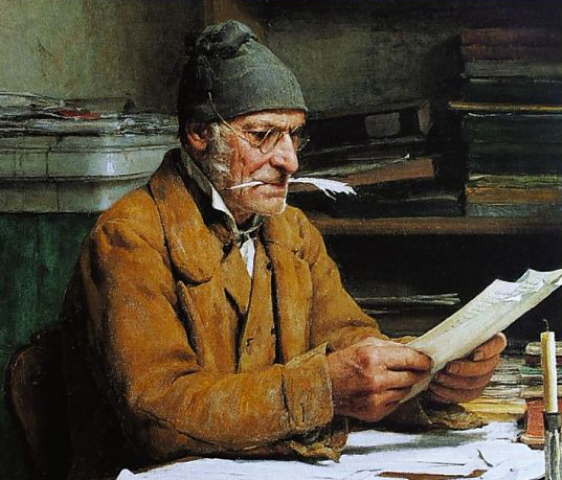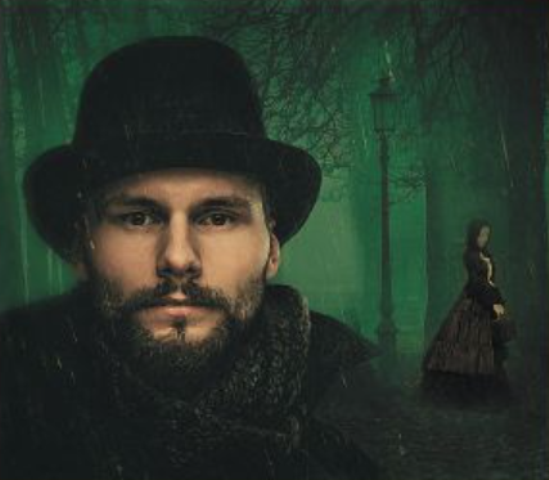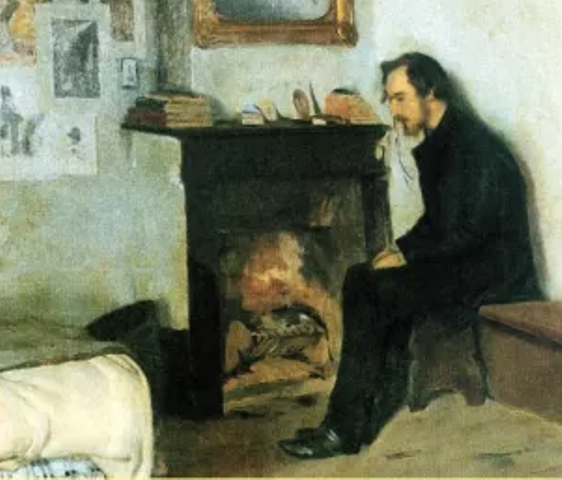Articles
-
 Analysis of the story “The Humiliated and Insulted”
Analysis of the story “The Humiliated and Insulted”21.12.2022
The Humiliated and Insulted is a novel by Fyodor Dostoyevsky, written some time after his return from exile, where he had been in exile. In 1857 Dostoevsky already had some sketches of a future novel and was considering the idea, but he did not take up his pen until several years later. The spring 1861 issue of Vremya magazine published the first part of the novel, and each issue thereafter contained a sequel.
Read more -
 What is “Notes from the Underground” about?
What is “Notes from the Underground” about?21.12.2022
The confession of a former St Petersburg official and at the same time a philosophical tale about human nature, the nature of our desires and ‘wills’ and the relationship between reason and the will. In the first part the hero, “underground man”, deprived of his name and surname, argues with imaginary and real opponents, reflects on the root causes of human actions, on progress and civilization. In the second part, theory is replaced by practice: the hero recounts a scandalous friendly dinner and his trip to a brothel, where he meets the prostitute Lisa. The ideological core of “Notes from the Underground” is the hero’s dispute with the most famous scientific theories of the mid 19th century (from Malthus to Darwin and Sechenov) and the hidden idea of Dostoevsky himself of the need for Christian faith and self-denial, the only guarantees of peaceful human life.
Read more -
 What is “Demons” about?
What is “Demons” about?21.12.2022
Nikolai Stavrogin, a demonic beauty, and Petrusha Verkhovensky, the son of a homeroom teacher, return to the provincial town at the same time from abroad. After their arrival, strange things begin to happen: scandals, fires and murders. Political intrigue is woven, rumours circulate, and each resident has a skeleton in his or her wardrobe. In the course of a month, the quiet town turns into a hell of a vortex, most of the characters die, go mad or flee. Dostoevsky conceives of an antinihilistic pamphlet, but writes a bleak and gripping tragedy of a world that has lost its harmony and meaning.
Read more -
 Why was Dostoevsky called the new Gogol?
Why was Dostoevsky called the new Gogol?20.12.2022
By the mid-1840s, Gogol was still the only major Russian writer, despite a well-developed sketching and life-descriptive tradition. Moreover, by publishing the first volume of Dead Souls and The Overcoat from his St Petersburg Tales series simultaneously in 1842 he had effectively retired from literature. In this situation the role of pupils and followers of Gogol is claimed by the authors of the natural school – and in terms of potential continuity any author of large form is considered. Dostoevsky, as the author of a novel thematically close to the Gogol tradition, was particularly hoped for in this sense. Although early critics and readers of the novel were never able to give an unequivocal answer to the question of what exactly Dostoevsky took from Gogol, a clue can be found in the novel itself.
Read more -
 What is The Poor People about?
What is The Poor People about?20.12.2022
Poor official Makar Devushkin writes letters to poor girl Varenka Dobrosyolova. He has been serving in the same place for thirty years, rewriting papers and dreaming of new boots, she lives alone with her assistant Fedora, takes home sewing and longs for the carefree days of her childhood. Devushkin turns his letters into sketches of everyday life in St Petersburg’s hired corners and their inhabitants. Varenka is sad and reproaches him for taking too much care of her. Dostoevsky blends the sentimentalist tradition of the novel in letters with the topical themes of the natural school, ending the novel in a sudden dissonance: the sentimental Varenka decides to marry with an arranged marriage and cuts off his correspondence, while Makar Devushkin finds himself emotionally unprepared for the loss.
Read more -
 What is “The Brothers Karamazov” about?
What is “The Brothers Karamazov” about?20.12.2022
Dostoevsky’s final novel and the concluding part of a five-book work in which the writer charts a way out of the ideological dead-end for modern society and polemicises the phenomena he considers the plagues of his age: atheism, materialism, utilitarian socialist morality and the decay of the family. A theosophical treatise in the guise of a detective novel about patricide, originally conceived as the first part of The Lives of the Great Sinner, through temptations coming to righteousness. Three brothers – Dmitri, Ivan and Alexei Karamazov – argue about eternal questions, resolving love and money conflicts in parallel. Is there an immortal soul? Does free will rule over man or are the laws of nature alone? Does God and the Creator exist? As Dostoevsky wrote to his editor Nikolai Lyubimov in the “Russky Vestnik” magazine: “If I succeed, I will do a good deed: I will force people to realize that a pure and ideal Christian is not an abstract matter, but an image real, possible and coming into view, and that Christianity is the only refuge of the Russian Land from all its evils.
Read more -
 What is “Crime and Punishment” about?
What is “Crime and Punishment” about?20.12.2022
Like other great novels, Dostoevsky’s Crime and Punishment has become so ingrained in culture, so quotable and so integral to history that even people who have never read the book have a rough idea of what it is about. At any rate, they know that the plot centres on the student Raskolnikov, who killed the old centenarian woman with an axe.
Read more -
 Fyodor Dostoyevsky’s life after exile
Fyodor Dostoyevsky’s life after exile20.12.2022
On June 30, 1859 Dostoevsky was given a temporary ticket permitting him to leave for Tver, and on July 2 the writer left Semipalatinsk. At the end of December 1859 Dostoevsky returned to St. Petersburg with his wife and adopted son Pavel, but secret surveillance of the writer did not cease until the mid-1870s. Dostoevsky was released from police surveillance on 9 July 1875.
Read more -
 Fyodor Dostoyevsky’s penal servitude and exile
Fyodor Dostoyevsky’s penal servitude and exile20.12.2022
Although Dostoevsky denied the charges brought against him, the court found him “one of the most important criminals” for reading and “for failing to report the dissemination of a letter written by the writer Belinsky criminal about religion and the government”. Until November 13, 1849, the Military Court Commission sentenced Dostoyevsky to deprivation of all rights of estate and “death by firing squad”. On November 19 Dostoevsky’s death sentence was overturned by the Auditor General’s report “in view of the inadequacy of his guilt” with a sentence of eight years’ hard labour. At the end of November Emperor Nikolay I when confirming the sentence imposed on Dostoevsky by the Auditor-General’s office replaced his eight-year hard labour term by four years and his subsequent military service as a private soldier.
Read more -
 Dostoevsky’s life in events
Dostoevsky’s life in events20.12.2022
Dostoevsky was born on Novaya Bozhedomka Street in Moscow. The metric book records: “A baby was born in the house of the hospital for the poor to the staff physician Mikhail Andreyevich Dostoyevsky’s son Fyodor. The priest Vasily Ilyin prayed. The hospital is still there, and the street (and neighbouring metro station) is named after the writer. There is also a memorial museum of Dostoevsky.
Read more
